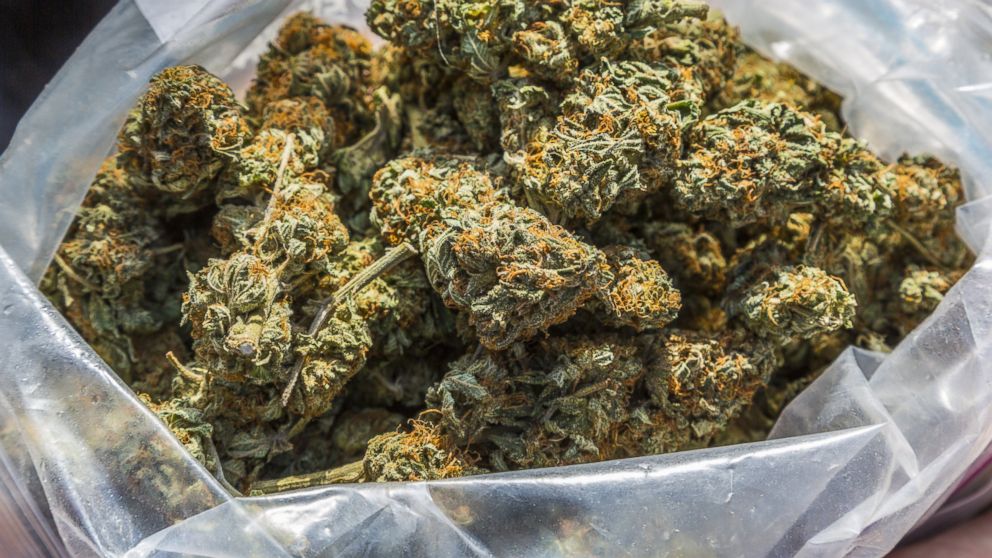No products in the cart.
Buy medical marijuanas in ga
medical marijuanas in ga has become a topic of increasing interest and debate across the United States, including in the state of Georgia. As more states embrace the medical benefits of cannabis, Georgia has also taken steps toward the legalization and regulation of medical marijuana. This article provides an in-depth exploration of medical marijuana in Georgia, covering aspects such as the legal framework, qualifying medical conditions, accessing dispensaries, benefits, risks, scientific evidence, the impact on healthcare and the economy, as well as the future prospects and challenges faced by the state. By understanding the current landscape surrounding medical marijuana in Georgia, individuals can gain insight into the potential benefits and implications of this alternative form of treatment.
1. Introduction to medical marijuanas in ga
Understanding the Basics
If you’ve been keeping up with the latest buzz in the medical world, you’ve probably heard a thing or two about medical marijuana. But what exactly is it? Medical marijuana refers to the use of cannabis or its chemical components to alleviate certain medical conditions. It’s not your typical joint for recreational use, but rather a carefully administered treatment option.
Historical Overview of Medical Marijuana in the State
Georgia may not be the first state that comes to mind when you think of medical marijuana, but it has made significant strides in recent years. In 2015, Georgia passed a law allowing registered patients to possess and use low-THC oil for limited medical conditions. Since then, the state has been working to expand access and provide relief for more patients in need.
2. Legalization and Regulation of medical marijuanas in ga
Current Legal Status of medical marijuanas in ga
While Georgia has taken steps toward medical marijuana, it’s important to note that recreational use is still illegal. As for medical use, the state allows registered patients with qualifying conditions to possess up to 20 ounces of cannabis oil with no more than 5% THC. However, the cultivation, sale, and distribution of marijuana remain illegal in Georgia.
Legislative Efforts and Changes in Marijuana Laws
The journey toward medical marijuana in Georgia hasn’t been without obstacles. Over the years, lawmakers have introduced several bills to expand access, lower THC restrictions, and create a regulated system for cultivation and distribution. However, these efforts are still a work in progress, with ongoing debates and discussions shaping the future of medical marijuana in the state.
3. Medical Conditions and Eligibility for medical marijuanas in ga
List of Qualifying Medical Conditions
Georgia’s medical marijuana program is focused on treating specific conditions. Some of the qualifying conditions include cancer, epilepsy, multiple sclerosis, Parkinson’s disease, and post-traumatic stress disorder (PTSD), among others. It’s crucial to consult with a healthcare professional to determine if medical marijuana is an appropriate treatment option for your specific condition.
Process of Obtaining a Medical Marijuana Card
To access medical marijuana in Georgia, patients must obtain a medical marijuana card. The process involves several steps, including visiting a qualified physician who will evaluate your condition and certify your eligibility. Once certified, you’ll need to register with the Georgia Department of Public Health to receive your medical marijuana card and gain legal access to treatment.
4. Accessing Medical Marijuana: Dispensaries and Patient Registration Process
Availability of Medical Marijuana Dispensaries in Georgia
When it comes to medical marijuana dispensaries in Georgia, it’s important to note that the state has a limited number of licensed entities. These dispensaries are strictly regulated, and patients must adhere to state guidelines to access their products. While accessibility may be a challenge, efforts are being made to improve availability and ensure patients can access their medicine.
Step-by-Step Guide to Patient Registration and Certification
If you’re considering medical marijuana in Georgia, here’s a simplified guide to getting started. First, consult with a qualified physician to determine if you’re eligible for the program. If approved, your physician will provide the necessary certification. Next, complete the registration process with the Georgia Department of Public Health and await your medical marijuana card. Once you have your card, you’ll be able to purchase cannabis oil from licensed dispensaries and start your treatment journey.
Remember, while medical marijuana may offer relief for certain conditions, it’s essential to approach it with caution and seek professional guidance to ensure it aligns with your healthcare needs.
**5. Benefits and Potential Risks of Medical Marijuana Use**
It’s no secret that medical marijuana has gained significant attention for its potential health benefits. Let’s take a closer look at some of the conditions it may help with and the possible risks you should be aware of.
**Medical Benefits of Marijuana for Various Conditions**
Medical marijuana has shown promise in alleviating symptoms for a variety of conditions. It’s been found to be effective in managing chronic pain, reducing nausea and vomiting caused by chemotherapy, improving appetite in those with HIV/AIDS, and controlling muscle spasms in multiple sclerosis patients. Additionally, some studies suggest it may help treat epilepsy and ease symptoms of certain mental health disorders like anxiety and PTSD.
**Potential Risks and Side Effects of Medical Marijuana**
While medical marijuana can offer relief for many, it’s important to be aware of potential risks and side effects. Some users may experience short-term memory loss, impaired coordination, or dizziness. Additionally, regular use can lead to dependence or addiction in some individuals. It’s crucial to consult with a healthcare professional to determine if medical marijuana is the right choice for you and to discuss potential risks based on your individual health and circumstances.
**6. Medical Marijuana Research and Scientific Evidence**
As the interest in medical marijuana grows, so does the need for scientific evidence to support its use. Let’s dive into the current state of research and what scientific findings tell us.
**Overview of Current Research on Medical Marijuana**
Research on medical marijuana is ongoing, but there’s still much to learn. Despite legal restrictions, scientists have made significant strides in understanding its potential. Studies have demonstrated the therapeutic benefits of marijuana for various conditions, including pain management, epilepsy, and certain mental health disorders. However, due to legal barriers, limited clinical trials and research have been conducted, hindering a comprehensive understanding of its full potential.
**Efficacy and Safety of Medical Marijuana: Scientific Findings**
Existing scientific evidence suggests that medical marijuana can be an effective treatment option for specific conditions. A study conducted by the National Academies of Sciences, Engineering, and Medicine found substantial evidence supporting marijuana’s effectiveness in treating chronic pain, chemotherapy-induced nausea and vomiting, and spasticity caused by multiple sclerosis. However, it’s important to note that more rigorous studies are needed to further explore its long-term safety, optimal dosage, and potential interactions with other medications.
**7. Impact on Georgia’s Healthcare System and Economy**
The introduction of medical marijuana in Georgia has had notable effects on both the healthcare system and the economy. Let’s take a closer look at how it has influenced these spheres.
**Impact of Medical Marijuana on Healthcare Providers**
With the legalization of medical marijuana, healthcare providers in Georgia have had to adapt to new regulations and incorporate marijuana-based treatments into their practice. This has required additional training and resources to ensure that patients receive proper care. Moreover, medical marijuana has provided an alternative treatment option for patients who may have exhausted other options or experienced limited relief from conventional medications.
**Economic Implications: Job Creation and Tax Revenue**
The medical marijuana industry has also created job opportunities in Georgia. From cultivators and processors to dispensary staff and healthcare professionals specializing in marijuana-based treatments, this emerging industry has generated employment opportunities across several sectors. Furthermore, the taxation of medical marijuana sales has brought in additional revenue for the state, which can be allocated toward various public services and programs.
**8. Future Prospects: Challenges and Opportunities for Medical Marijuana in Georgia**
As medical marijuana continues to evolve in Georgia, there are both challenges and opportunities that lie ahead. Let’s explore these factors shaping its future prospects.
**Challenges in Expanding Medical Marijuana Access**
One of the main challenges Georgia faces is expanding access to medical marijuana for those who could benefit from it. Current regulations limit the number of eligible conditions, which may exclude patients who could potentially find relief. Additionally, the supply and distribution of medical marijuana products need to be carefully managed to ensure safe and reliable access for patients across the state.
**Potential Opportunities for Growth and Development**
Despite the challenges, there are promising opportunities for the growth and development of the medical marijuana industry in Georgia. As more scientific evidence emerges and public perception evolves, there is the potential for expanding the list of eligible conditions, facilitating research, and further integrating medical marijuana into mainstream healthcare practices. This could lead to improved patient outcomes, increased job opportunities, and economic growth for the state. In conclusion, the legalization and regulation of medical marijuana in Georgia have opened new avenues for patients seeking alternative treatment options. With an ever-growing body of scientific evidence supporting its efficacy, medical marijuana has the potential to transform healthcare in the state. However, challenges still exist, ranging from legal barriers to societal stigmas. As Georgia continues to navigate this evolving landscape, it is crucial to prioritize patient access, education, and ongoing research. By staying informed and open-minded, Georgia can harness the benefits of medical marijuana while addressing the concerns surrounding its use.
Frequently Asked Questions
1. Is medical marijuana legal in Georgia?
Yes, medical marijuana is legal in Georgia, but with certain limitations. In 2015, the state enacted Haleigh’s Hope Act, allowing the use of low-THC cannabis oil for specific medical conditions. In 2019, the state expanded the program to include in-state cultivation and production of medical marijuana products.
2. What medical conditions qualify for medical marijuana in Georgia?
Qualifying medical conditions for medical marijuana in Georgia include severe or end-stage conditions such as cancer, ALS, multiple sclerosis, Parkinson’s disease, epilepsy, HIV/AIDS, and several others. A full list of qualifying conditions can be obtained from the Georgia Department of Public Health.
3. How can I obtain a medical marijuana card in Georgia?
To obtain a medical marijuana card in Georgia, patients must first be diagnosed with one of the qualifying conditions by a registered physician. Once diagnosed, patients can apply for a Low THC Oil Registry Card through the Georgia Department of Public Health. The process requires completing an application, providing the necessary documentation, and paying the required fee.
4. Are there medical marijuana dispensaries in Georgia?
Yes, Georgia allows the operation of medical marijuana dispensaries. However, the state has a limited number of licensed dispensaries, and they are only permitted to sell low-THC cannabis oil products. Patients with a valid medical marijuana card can visit these dispensaries to purchase their prescribed medications.
Be the first to review “Buy medical marijuanas in ga” Cancel reply
Related products
Sale!
Cannabis
Sale!
Cannabis
Cannabis
$45.00 – $360.00
This product has multiple variants. The options may be chosen on the product page Cannabis
$250.00 – $1,700.00
This product has multiple variants. The options may be chosen on the product page Sale!
Cannabis
$250.00 – $1,500.00
This product has multiple variants. The options may be chosen on the product page Cannabis
$25.00 – $325.00
This product has multiple variants. The options may be chosen on the product page 








Reviews
There are no reviews yet.